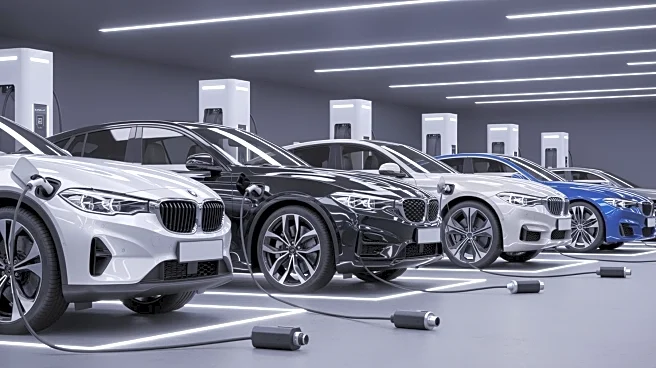What's Happening?
The latest electric vehicles (EVs) from manufacturers like Lucid, Rivian, and Hyundai are now equipped with Tesla's Supercharger ports, creating a need for adapters at non-Tesla charging stations. This
shift to Tesla's North American Charging Standard (NACS) means that public charging stations from providers like ChargePoint, Electrify America, and EVgo require adapters for these new EVs. Hyundai's new models come with two adapters, while Rivian's 2026 models include a J1772 adapter for Level 2 charging and a CCS Combo 1 DC fast adapter. General Motors plans to transition its Cadillac Optiq to NACS by 2026. ChargePoint is addressing the adapter issue by introducing the Omni Port, which integrates adapters into the charging station itself, allowing drivers to select their EV type for charging.
Why It's Important?
The integration of Tesla's Supercharger ports into new EV models signifies a major shift in the EV charging landscape, potentially increasing the accessibility and convenience of charging for Tesla owners. However, it also introduces complexity for non-Tesla EV owners who must navigate the adapter requirements at public charging stations. This development could drive innovation in charging infrastructure, as companies like ChargePoint work to simplify the charging process with built-in adapters. The transition to NACS may also influence other automakers to adopt Tesla's charging standard, further consolidating the EV charging ecosystem. As the number of EVs on the road continues to grow, resolving these adapter challenges will be crucial for ensuring a seamless charging experience.










